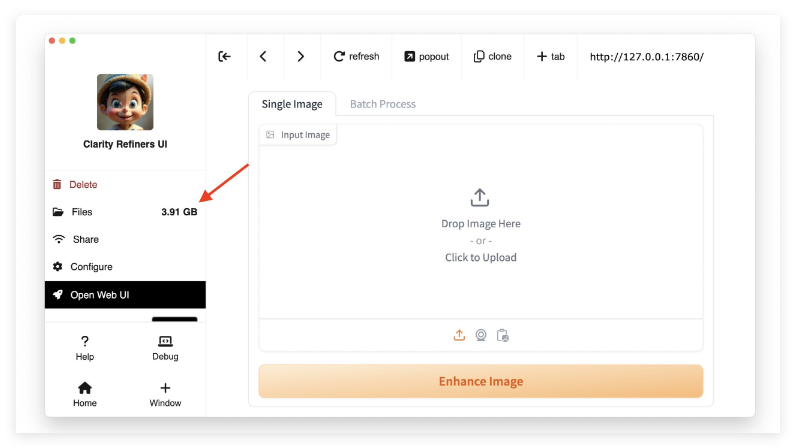The open-source AI model management tool Pinokio has released version 3.0, introducing important new features such as interface customization, package management optimization, and browser automation, further simplifying the process for users to deploy and run open-source AI models locally.

Pinokio now displays the amount of disk space used by each application.
The core highlights of this update include: a comprehensive upgrade of the interface customization feature, allowing users to freely adjust the appearance of the homepage, application pages, and terminal using CSS code; a switch to UV as the native package manager for Python, enhancing the speed of new package installations; a new feature that displays disk space usage, making it easier for users to manage installed applications; and an optimized error messaging system that replaces the previous vague notifications like "ENOENT: File not found".
In terms of advanced features, Pinokio 3.0 introduces a JSON manipulation API, enabling users to directly edit structured JSON files through scripts, allowing for flexible configurations including script self-modification. The new version also supports browser automation through the integration of Playwright, allowing scripts to directly control web-based workflows.
To enhance usability, the development team has added an installation wizard to assist users in configuring environment variables within scripts, along with native integration of Hugging Face API support. Technical improvements include resolving port 80 conflict issues, optimizing compatibility with the Metal platform on macOS, and fixing duplicate file issues in the system.

The pre-configured Playwright implementation allows developers to automatically control browser interactions and automate complex web workflows through scripts. | Image: Cocktail Peanut
As a free open-source tool, Pinokio supports Windows, macOS, and Linux systems, and is regarded by users as a convenient solution for running open-source AI models like SDXL, Flux, and Whisper locally. The platform can also work in conjunction with dedicated LLM tools such as GPT4All, Ollama, and LM Studio, providing users with comprehensive AI model deployment support.
The development team has stated that more interface themes will be released in the future to further enhance user experience. This update marks an important step for Pinokio in providing a more professional and user-friendly AI model management tool.
